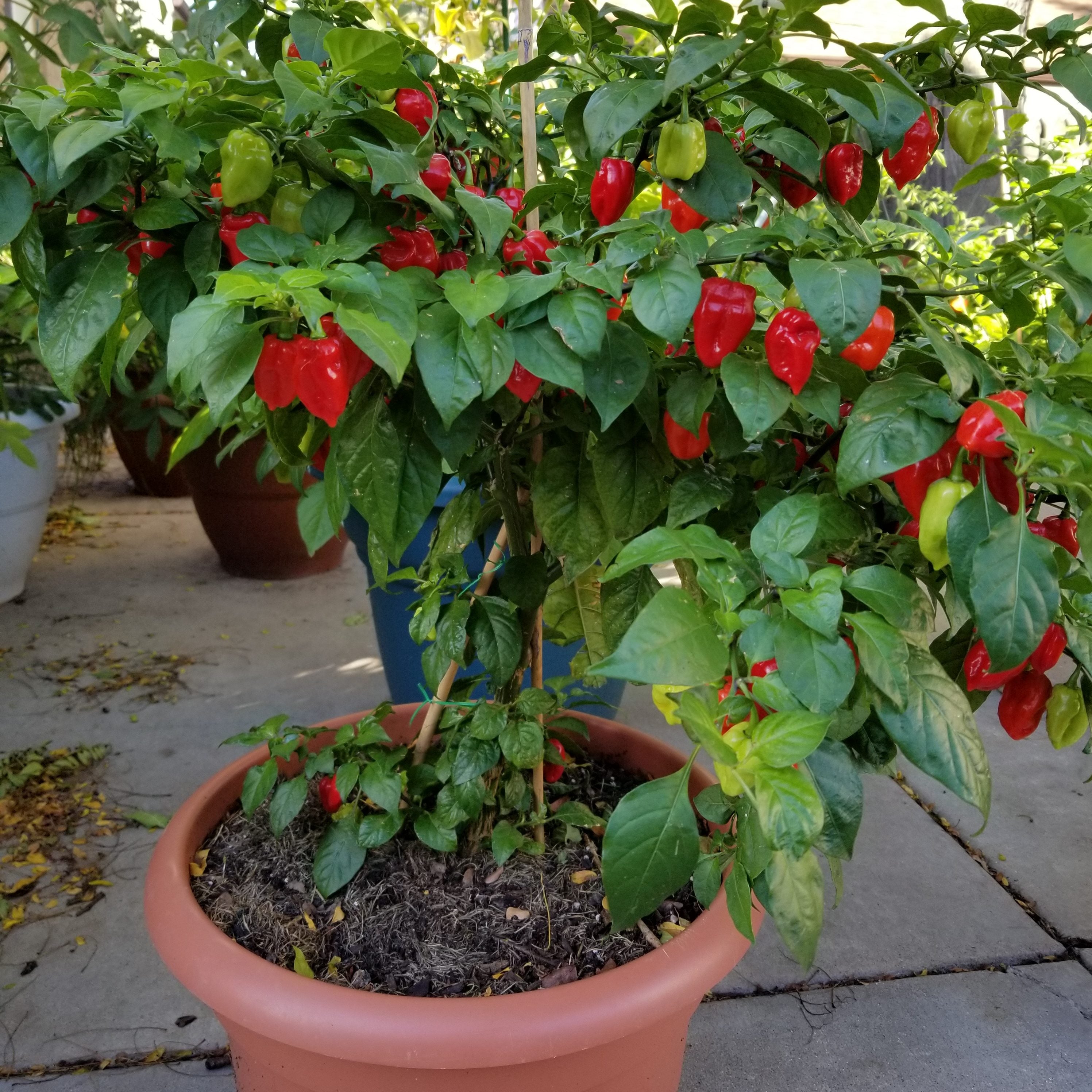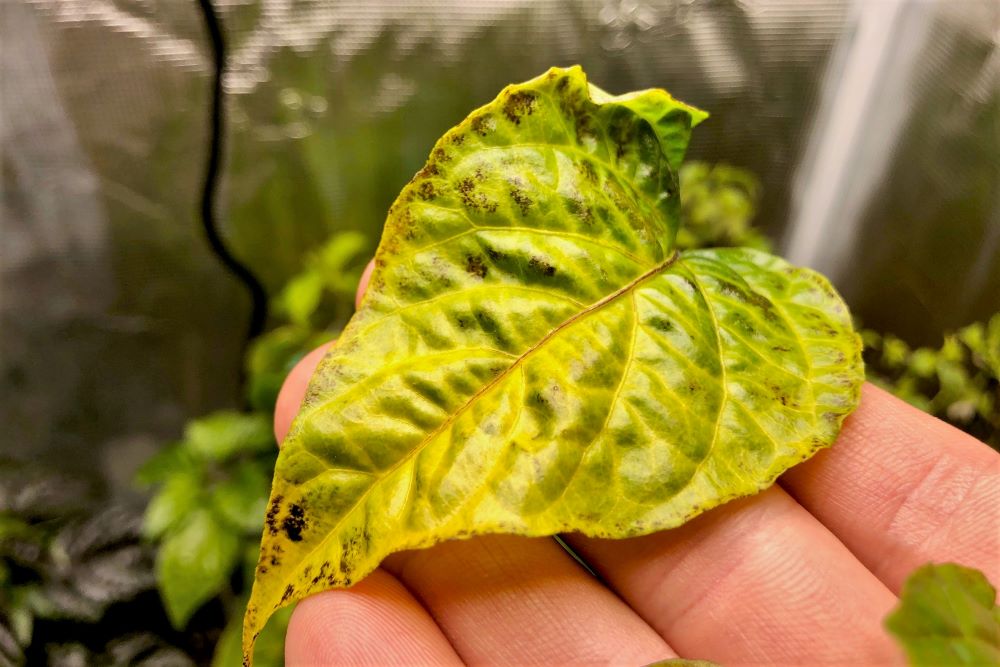The Benefits and Techniques of Making Use Of Plant Foods for Peppers in Your Garden
The benefits of using fertilizers for peppers extend past simple plant growth; they play a vital role in boosting fruit manufacturing and total plant health and wellness. Understanding the certain needs of pepper plants and selecting the best fertilizer can be a game-changer in your horticulture journey. By exploring the strategies of appropriate plant food application and establishing a timetable customized to your pepper plants, you can open their full capacity.
Relevance of Plant Foods for Peppers
Fertilizers play a vital role in ensuring the optimal growth and performance of pepper plants in a garden setup. The main nutrients needed by pepper plants are potassium, phosphorus, and nitrogen.
When peppers do not have these essential nutrients, they might show stunted growth, yellowing leaves, reduced blooming, and bad fruit collection. By giving the appropriate plant foods in the right amounts, gardeners can deal with these deficiencies and advertise healthy plant growth. Additionally, fertilizers aid pepper plants hold up against ecological stressors such as extreme temperatures, parasites, and illness, allowing them to concentrate their power on development and fruit production.
Picking the proper fertilizer formulation, whether organic or artificial, and adhering to appropriate application techniques are vital consider making the most of the benefits of plant foods for pepper plants in a garden setup. Regular dirt screening can additionally assist identify any type of nutrient inequalities and overview garden enthusiasts in producing a customized fertilization plan tailored to the details requirements of their pepper plants.
Picking the Right Fertilizer
Picking the appropriate fertilizer for pepper plants is necessary for guaranteeing their optimum growth and efficiency in a yard setup. When choosing a fertilizer for peppers, it is crucial to take into consideration the specific nutrient needs of these plants.

Before applying any type of plant food, it is essential to conduct a soil test to establish the current nutrient levels in the soil. This details can direct you in choosing the ideal plant food and developing a personalized fertilizing strategy for your pepper plants, promoting healthy growth and bountiful returns.
Application Methods for Maximum Results
When applying plant foods to pepper plants, it is critical to adhere to certain methods to ensure that the nutrients are properly taken in and utilized by the plants. One vital method is to apply the plant food uniformly around the base of the plants, ensuring that it is not focused in one location.
One more important application method is to water the plants extensively after using the fertilizer. This aids to dissolve the nutrients and lug them down to the roots where they are needed for development. Furthermore, it is recommended to apply plant foods during the cooler components of the day, such as early morning or late night, to avoid evaporation and make best use of absorption.
Moreover, routinely checking the plants for any type of signs of nutrient deficiency or excess can aid in adjusting the plant food application as necessary. By employing these essential application methods, you can make sure that your pepper plants receive the essential nutrients for healthy growth and bountiful returns.
Fertilizer Schedule for Pepper Plants
When should pepper plants be fed to ensure optimal development and performance in your garden? Establishing a well-structured plant food schedule is crucial for the healthy growth of pepper plants - best fertilizers for peppers. Peppers have details nutritional demands that differ throughout their growth stages

As the pepper plants start flowering, button to a phosphorus-heavy plant food to promote robust flower and fruit development. Potassium-rich plant foods should be presented throughout the fruiting phase to boost fruit quality and return.
Throughout the growing season, monitor the plants for any signs of nutrient shortages and change the plant food timetable as necessary. Keep in mind to sprinkle the plants deeply after each fertilizing to aid in nutrient absorption. By following a constant and well-tailored fertilizer routine, you can make sure strenuous development and plentiful harvests from your pepper plants.

Tips for Fertilizing Peppers Successfully
Successfully fertilizing peppers involves not just recognizing their details nutrient requirements throughout different growth phases, as reviewed previously, yet additionally executing practical techniques to enhance nutrient uptake and usage. One crucial tip is to carry out a soil test before applying any fertilizers to identify the existing nutrient levels. This assists in personalizing the fertilizer application to fulfill the specific needs of More hints the pepper plants. It is advisable to use a balanced plant food with a proportion such as 10-10-10 or 20-20-20 to ensure peppers receive a mix of important nutrients. Applying plant foods in the correct amount and at the correct time is crucial. It is address usually advised to feed peppers lightly but frequently throughout the expanding period. Over-fertilizing can result in nutrient imbalances and cause injury to the plants. Furthermore, watering the plants before and after feeding aids in the effective absorption of nutrients. Finally, incorporating raw material into the soil can boost its nutrient-holding capability, aiding in the lasting health and wellness of pepper plants.
Conclusion
In final thought, plant foods play a critical function in the development and development of pepper plants in your yard. By selecting the suitable plant food and applying it appropriately, you can guarantee your peppers receive the essential nutrients for ideal growth. best fertilizers for peppers. Complying with a consistent plant food timetable and implementing efficient methods will help maximize the advantages of plant foods for your pepper plants, resulting in healthy and balanced and effective crops
The benefits of making use of fertilizers for peppers you could look here extend past plain plant growth; they play a critical role in enhancing fruit production and general plant health.Fertilizers play a vital role in making sure the optimal development and performance of pepper plants in a yard setup. When picking a fertilizer for peppers, it is essential to take into consideration the details nutrient requirements of these plants. When applying plant foods to pepper plants, it is essential to follow specific techniques to make certain that the nutrients are effectively absorbed and utilized by the plants. Following a consistent fertilizer schedule and implementing effective strategies will certainly assist maximize the benefits of fertilizers for your pepper plants, resulting in healthy and productive plants.